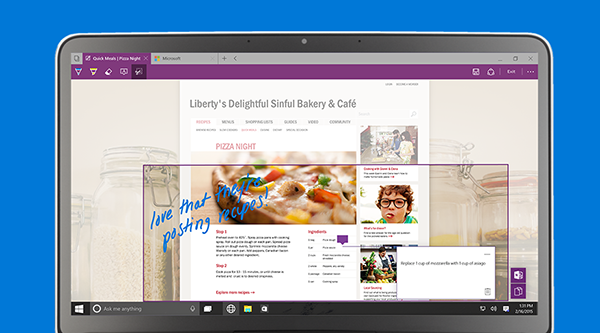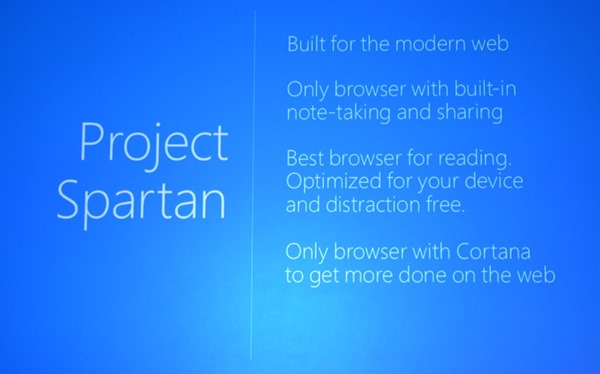It seems that today’s Microsoft event – rather than unleashing a bunch of juicy, never-before-heard details on Windows 10 and its associated products – is merely a checklist of all the tidbits we’ve been hearing over the past couple of months. Still, it’s good to know that the rumor mill is doing its job as efficiently as ever, and with the reports of Microsoft working on a new "Spartan" browser to replace the long-standing Internet Explorer, the company has now officially taken the wraps off Project Spartan for Windows 10.
Internet Explorer has had its fair share of ups and downs over the years, and despite a mini-revival with IE10, the fact that Windows 10 offers so many new features and alterations was bound to have some sort of effect on IE’s immediate future. Not long after Microsoft first gave us an inkling of Windows 10 back in late September, it was suggested that Spartan, yet another Halo-themed name that lines up nicely with the likes of Cortana, could finally put paid to Internet Explorer, but whilst today’s announcement has confirmed this, we don’t yet know whether Project Spartan’s arrival will spark the immediate demise of Microsoft’s current, omni-present surfing client.

In recent years, the likes of Mozilla Firefox and Google Chrome have grabbed large chunks of market share, and whilst IE has, as aforementioned, been treated to many drastic transformations during that time, the switch to an all-new browser suggests that Microsoft has taken IE as far as it can.
Aside from noting that Project Spartan will serve as the new browsing experience for Windows 10, Microsoft is being rather scant on features and intimate details at this moment in time. Hopefully, fairly soon, we should learn a great deal more about what to expect from Spartan, and given how accurate Microsoft-related reports have been of late, we mightn’t have to wait for the next official announcement to do so.

From the list of features that have been highlighted by Microsoft; the new browser will now let you scribble on Web pages, take notes, switch pages to reader mode etc. We’re sure this list will expand once Spartan inches closer to its official release with Windows 10.
Given that many people are comfortable with their current browser and not necessarily scouting for alternatives, it’ll be intriguing to see how Microsoft plays this one. From what we’ve heard, there’ll be a slew of features included that Chrome, IE and Firefox users are not accustomed to, and as more details emerge, we’ll have them covered right here!
You may also like to check out:
You can follow us on Twitter, add us to your circle on Google+ or like our Facebook page to keep yourself updated on all the latest from Microsoft, Google, Apple and the web.

